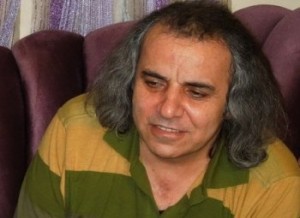HRW: Let Prisoners Get Needed Medical Care in Iran
 Human Rights Watch last week called on Iranian authorities to grant three political prisoners access to much-needed proper medical attention.
Human Rights Watch last week called on Iranian authorities to grant three political prisoners access to much-needed proper medical attention.
They are being held in the notorious Evin Prison, a security unit where Human Rights Watch has previously documented abuses. Cleric Ayatollah Kazemi Boroujerdi, journalist and activist Mohammad-Sadiq Kaboudvand, and prominent human rights advocate Emad Baghi are all reported by HRW to be in poor health and in need of specialist medical attention. Baghi had a heart attack on May 11 and Kaboudvand had a stroke on May 19, while Boroujerdi suffers from a range of ailments, including Parkinson’s disease, diabetes, and heart disease.
“It’s outrageous that these men’s health is being comprised for no apparent reason,” said Sarah Leah Whitson, Middle East and North Africa director at HRW. “Iranian authorities have yet to produce evidence for why these men are in prison to begin with, and now they are refusing to provide them with adequate care.”
Boroujerdi, arrested in 2006, was allowed trips to the prison medical clinic until April of this year, but has consistently been denied access to a physician or clinic outside the prison system. HRW cited sources close to the case as saying that his mental and physical health were rapidly deteriorating.
Baghi has been in Evin Prison in 2007 and developed heart problems while in solitary confinement there. Released for a two-month period in early 2008 on medical leave, he was re-imprisoned and soon thereafter suffered a heart attack. After a brief period in the prison clinic, he was placed back in his cell.
Arrested in 2007, Kaboudvand suffered a heart attack while in jail. According to his lawyer, frequent requests for treatment have gone ignored.
Under the UN Standard Minimum Rules for the Treatment of Prisoners, prisoners who require specialist treatment should be transferred to specialized institutions or to civil hospitals.
“The Iranian authorities are responsible for the well-being of these prisoners,” said Whitson. “This includes ensuring that each of the three men get immediate access to the specialist care that they need. If this care is not available in the prison, it should be provided outside.”
For the full article, click here.
Comments are closed.